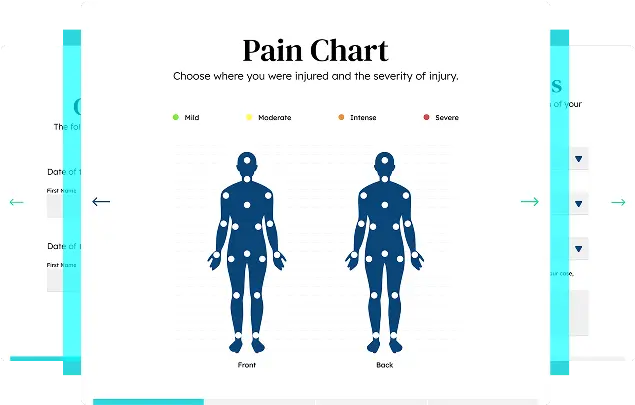Complete Guide to Massachusetts Recreational Boating Safety
With its wide array of coastline, river systems, lakes, ponds, and streams, Boating is one of the most popular activities in Massachusetts. However, before taking to the waterways, Commonwealth residents or tourists must know the essentials of boating safety. Boston and other areas of the state can have particularly congested waterways, leading to serious accidents. This guide will help boaters understand key regulations to keep themselves and those around them safe.
Get Free Advice About The Compensation You Deserve
Home » Complete Guide to Massachusetts Recreational Boating Safety
Reviewed by: Christopher DiBella
December 11, 2025
On This Page
- What To Know About Massachusetts Boating Safety Laws
- Who Must Have a Boating Safety Certificate in Massachusetts?
- Essential Safety Gear for Boating on Massachusetts Waters
- Safety Tips for Massachusetts Boaters Regarding Cold Water
- Step-By-Step on Reporting Boating Accidents in Massachusetts
- Reach Out to DiBella Law for Help With Boating Safety Rules and Legal Support
What To Know About Massachusetts Boating Safety Laws
Several laws aim to protect everyone on the waters in Massachusetts, including the following:
- Children under 12 may not operate a motorboat unless accompanied by a competent person 18 or older.
- All vessels must have one U.S. Coast Guard-approved wearable life jacket for each person onboard.
- Children under 12 must wear a life jacket at all times aboard a moving vessel.
- Anyone operating or riding a personal watercraft must wear a life jacket.
- It is illegal to operate any boat while under the influence of alcohol or drugs.
- Boaters must operate at safe speeds at all times, especially in no-wake zones, marinas, and near swimmers.
- Operators must be at least 16 years old and have passed an approved safety course.
- All motorboats must be registered with the Massachusetts Environmental Police and display registration numbers.
- Boating accidents involving injury, death, or significant property damage over $500 must be reported to the Massachusetts Environmental Police.
- Fatal accidents must be reported within 48 hours; others within five days.
Compliance can prevent legal issues and accidents. Our boat crash attorneys have deep experience navigating these regulations. Contact us to learn more.
We’ve offered crucial support and guidance to individuals who have suffered injuries, ensuring their financial and emotional well-being.
Who Must Have a Boating Safety Certificate in Massachusetts?
To operate a water vessel in the Commonwealth, minors between the ages of 12 and 15 must have a boating safety certificate issued by the Massachusetts Environmental Police. Children under 12 may not operate a motorboat unless accompanied by someone 18 or older.
To operate a personal watercraft, you must be at least 16 and possess a Massachusetts-approved boating safety certificate. Those under age 16 are prohibited from operating a personal watercraft under any circumstances, even with a certificate.
However, even if you are not legally required to, obtaining a certificate has benefits, such as safer boating practices and potentially avoiding legal complications. If you have been injured in a boating collision, contact our team today to discuss your legal options.
Essential Safety Gear for Boating on Massachusetts Waters
Carrying the proper safety equipment is not just a legal requirement but vital for safety. Devices and equipment that may be required include the following:
- Personal Flotation Devices and Life Jackets: Every vessel must carry one U.S. Coast Guard-approved wearable life jacket for each person onboard.
- Fire Extinguishers: The state requires motorboats and vessels to carry fire extinguishers with enclosed compartments.
- Visual Distress Signals: Boats operating on coastal waters must carry U.S. Coast Guard-approved day and night visual distress signals in case of emergencies.
- Sound-Producing Devices: All vessels must carry a horn, whistle, or other means of making a sound signal to alert other boaters or signal for help.
- Navigation Lights: Vessels operating between sunset and sunrise must display proper navigation lights visible from all directions.
- Anchor and Line: While not legally required on all boats, anchor and lines are strongly recommended, especially on inland or coastal waters.
- Manual Bailer or Bilge Pump: These are not always required. However, boats without automatic bilge systems or that are not self-bailing must have them.
- Oars or Paddle: These are not necessary for motorized boats, but are often required or advised for small non-motorized craft, like canoes or kayaks.
- Ventilation Systems: Inboard gasoline-powered boats must have a functioning ventilation system to remove explosive fumes from engine compartments.
- Backfire Flame Arrestor: All gasoline-powered inboard/outboard engines must be equipped with a U.S. Coast Guard-approved backfire flame arrestor to prevent ignition of fuel vapors.
The failure to have safety equipment might lead to a catastrophe and can result in legal liability.
Safety Tips for Massachusetts Boaters Regarding Cold Water
Some unique dangers come with the cold waters in Massachusetts. Take the following steps for cold water safety:
- Wear a Life Jacket: Always wear a properly fitted, Coast Guard-approved life jacket to keep you afloat if you fall into cold water.
- Dress for the Water Temperature, Not the Air Temperature: Wear insulating, waterproof layers like a wetsuit or drysuit to protect against hypothermia in cold water.
- File a Float Plan: Let someone know your route and expected return time so rescuers can find you quickly in an emergency.
- Understand Cold Shock: Sudden immersion in cold water can cause an involuntary gasp reflex and rapid breathing, which increases the risk of drowning.
- Know the 1-10-1 Rule:
- 1 Minute: You have about one minute to regain control of your breathing and prevent cold shock from overwhelming you.
- 10 Minutes: You have about 10 minutes of meaningful movement before your limbs become incapacitated due to the cold. Focus on self-rescue or getting back into/onto your boat.
- 1 Hour: Even in ice-cold water, it can take approximately one hour before becoming unconscious due to hypothermia. Conserve energy and heat.
- Stay with Your Boat if it Capsizes: Staying with your capsized boat increases your chances of being seen and rescued.
- Adopt the HELP Position, or Heat Escape Lessening Posture: Curl your knees to your chest and keep your arms tight to your sides while wearing a life jacket to slow heat loss.
- Huddle with Others: If you’re in the water with others, huddle together to conserve body heat and maintain morale.
- Carry Communication Devices: Bring a waterproof, fully charged communication device, such as a VHF radio or cell phone, in a dry bag to call for help.
- Avoid Alcohol: Alcohol impairs judgment and accelerates heat loss, making cold water immersion even more dangerous.
Cold water safety and awareness can prevent tragic incidents.
Step-By-Step on Reporting Boating Accidents in Massachusetts
If you are involved in a boat accident, take the following steps to protect your well-being and preserve your options for pursuing a personal injury claim:
- Ensure Safety First: In the aftermath of a boating crash, check for injuries on yourself and others involved.
- Contact Authorities Immediately: In emergencies, call 911 and alert medical services for professional assistance.
- Gather Information: Take photos and videos of the accident scene, write down details of the incident, and get contact information from witnesses.
- Get Immediate Medical Attention: Even if you don’t think you have been injured, have a medical professional assess your condition. Some injuries are not immediately apparent.
- Report the Accident: By reporting the accident, you can begin the process of pursuing compensation for your damages, including medical bills, lost wages, and emotional trauma.
Accurate and timely reporting can be crucial for legal purposes. Our skilled attorneys can assist clients through this process. Contact us today to schedule an initial consultation.
Get immediate case evaluation with no cost or obligation to you in less than 5 minutes.

Reach Out to DiBella Law for Help With Boating Safety Rules and Legal Support
DiBella Law offers comprehensive legal assistance related to Massachusetts boating safety regulations, including advice on compliance. We are committed to protecting our clients’ interests on the water.
If you’ve been injured in an accident, we can help. We offer a client-centered approach to injury cases, combining compassionate counseling with aggressive legal representation. We’ve recovered millions in settlements & verdicts for our deserving clients.
Contact us today to learn how we can help.
